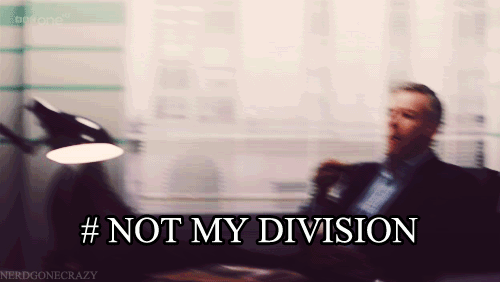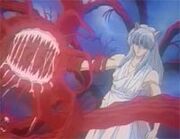So there's this guy who apparently has a PhD, though in what he (I'm assuming 'Roahn' is a male name here), though in what he doesn't say; he has an office in the Physics Astronomy Building. Anyway, he has written a page entitled 'The Brave New World of Unambiguous Movie Criticism', in which he proposes to... well, I'll quote:
If you are tired of droll and vague complaints about contemporary films, you have come to the right place. It is the goal of these pages to identify specific script flaws and avoidable story errors with the hope of generating a useful tool for writers. No longer will a critic be allowed to say "It just didn't work for me," or "I've seen that idea before." It is our purpose to force rigor in the sensibilities of movie critics by giving them a solid evidence based structure upon which to lean.
A bit high-handed, but fair enough. What gets me is his page entitled 'Why the Lord of the Rings is a Bad Story'. It's the only story he dedicates an entire page to, introducing it with 'If the reader has familiarized themselves with the various plot problems I have mentioned in other sections of this website then he or she is now prepared to understand why the Lord of the Rings (LotR) is not a good story' - which makes me wonder whether the entire website exists solely to justify this particular essay.
But okay, sure. People are allowed to say they don't like LotR, or even that they think it's objectively bad. But... his reasons are, put simply, wrong.
It has three forbidden motifs, one LSOC, four separate unexplained prophecies one major internal inconsistency and one minor internal inconsistency.
(And my red pen is twitching at the missing punctuation, believe me)
According to Roahn, there are ten problems which demonstrate that 'LotR is a Bad Story'. According to me, he's wrong about... pretty much all of them.
-Forbidden motif: 'Frodo's adventure to Mt. Doom is the archetypical example of sneaking behind enemy lines and dealing a serious blow'. He allows for the fact that the notion (first on his list of forbidden plots) wasn't cliche at the time it was written by, er, saying 'don't care'. And, ultimately, yes, that is the plot of the book. But... Frodo didn't get into Mordor because of plot, he made it in because everyone else was working to distract Sauron so he could. That's explicit in the books, and even more so in the films ("... a diversion!"). Yes, ' a little detail that escapes Sauron's eye leads to his downfall even as he is on the verge of conquering Middle Earth' - but that isn't 'simply an irony', it's what all the Good Guys were working desperately to achieve.
-Forbidden motif: 'Aragron's compulsion to succeed where his direct male ancestor, Isildur, failed.' This doesn't actually appear to be on his list of Forbidden Plots, but that's okay - it's also not in the books. The movies made a fair amount of fuss over 'Aragorn can't get married until he takes Gondor', but that... really doesn't work the same in the books. He talks about 'until he has a chance to bring the royal family of Gondor redemption' - not only was Isildur not Gondorian royalty (again, not really discussed in the film), but Aragorn didn't express any desire to redeem him or make up for his mistake. Aragorn's goal was to preserve both the North and South Kingdoms against Sauron, and to restore order to what was becoming an orderless land.
-Forbidden motif: 'Gandalf, and indeed all Middle Earth, is betrayed by his boss, Saruman. Who would have thought that the man Gandalf respects and trusts the most is the very one that would betray him and take him prisoner, almost ending the whole story right there? Oh,... *I* would have guessed, that's who.' Er... would you really? Because Saruman's name is mentioned, um, once prior to Gandalf telling us the story of how he betrayed him. This is not a massive plot twist - it's part of the background. You could maybe make a case for Denethor's actions being a form of this motif - except I'd argue vehemently against that, too.
Next up is an 'LSOC', or Literary Second Order Confluence, which Roahn defines as two plot-driving coincidences which happen with no connection to each other. Essentially, he's thinking of times where we already have a reason to follow the main character (he gives the example of Bruce Willis in The Fifth Element being a super-trained soldier type), and then a second coincidence stacks on top of it (Bruce has already met the person he's supposed to protect).
-LSOC: 'How is it that a group of incompetent dwarves and one bumbling Hobbit could possibly succeed in traveling across middle earth and winning back the treasure stolen by a ferocious dragon? Answer: they can't unless the Hobbit happens to find a powerful magic trinket along the way and that Hobbit exploits its power of invisibility in the most obvious ways to save the hapless troupe from certain doom time after time.' This... is a very big assumption. The ways Bilbo uses the Ring to save the dwarves are: to fight off spiders, and in the escape from the Elvenking's Halls. Now, admittedly, we're not shown any other ways these problems could have been dealt with - because Bilbo had the Ring, and used it. But could he have distracted the spiders without it? Sure (though he might have been captured on the way). Could they have escaped Thranduil without it? One way or another, yes - probably when Thorin or one of the others finally succumbed and admitted why they were there. What would Thranduil have done then? I'm guessing sent them on (he wanted the treasure, remember) with Elven guards.
But the big thing, the killing of Smaug - that didn't require the Ring at all. It was all down to a thrush, a raven, and a bowman.
Furthermore, his description of the 'problem' is flawed. He listes the two coincidences as: '1) Bilbo knows Gandalf personally and Gandlaf is eccentric enough to send Bilbo on a hopeless mission and 2) instead of immediately dying on this hopeless mission the moment that Gandalf leaves the party, Bilbo is positioned to pick up the Ring which seems to be looking for a way out of the Misty Mountains.'
Well... no, Bilbo didn't know Gandalf 'personally' (or even the mini Gandlaf). He knew his name, sure - but not his face. And Bilbo himself was not significant - any hobbit could have filled the spot. The first 'coincidence' boils down to 'Gandalf sends a light-footed creature to do some sneaking'. Plot-driving, yes - but not exactly 'eccentric'.
But what about the Ring? If we re-render the coincidences as 'Bilbo doesn't die' and 'Bilbo gets the Ring', we still have a potential problem. Only... well, Roahn rather shoots himself in the foot here:
Now it is true that Gandalf believes that there is "something" special about Hobbits, but he never indicates why he believes this or what that special thing is. Can it be that the special thing is that they are DESTINED to find the Ring of Power and that they are DESTINED to successfully led it to Mt. Doom and destroy it? ... However if that speculation were true that would destroy the independence of Bilbo's quest as assigned by Gandalf and the discovery of the Ring of Power.
Have you got that? If there was an actual Power behind Bilbo's discovery of the Ring, then that would 'destroy the independence' of the two coincidences - ie, stop them being an LSOC.
Um... there is. Actually, there are several options. The most prominent is Iluvatar Himself, and that's what Gandalf seems to be hinting at (without presuming to declare it outright), but it could also be the work of one or more of the Valar - Manwe, Varda (Elbereth), or Ulmo are the most obvious candidates. The statement that 'the movie version of Fellowship of the Ring unambiguously claims that it is pure co-incidence that Bilbo found the Ring' may be true - but I'm sure I recall Sir Ian giving the 'Bilbo was MEANT to find the Ring' speech to Frodo, which I think negates that point too.
'Even if we accept prophetic power without reliable textual evidence we are still left with a story that requires substantial metaphysical groundwork, and this groundwork is never laid.' This is an interesting point. Apart from the fact that it's wrong (the metaphysical groundwork - Iluvatar and the Valar - is very much laid), it also exposes a bizarre oversight on Roahn's part. He insists on thinking that the only way Gandalf could have picked Bilbo (or any hobbit) without it being 'coincidence' is for Gandalf to know of an explicit prophecy. Which... no. Gandalf is a messenger of the Valar, and can be guided by them without knowing why - or even being aware he's doing so. There's an account in an unused chapter of LotR where he pretty much says 'and then the idea of sending a hobbit came to me out of the blue'. He doesn't know of a prophecy - but the Powers use him nontheless.
Next up, Roahn has a thing against prophecies:
-Prophecy: Boromir and Faramir's dream. This actually isn't a prophecy at all - it gives instructions ('Seek for the sword that was broken/In Imladris it dwells'), and then mostly describes events that are already in motion ('There shall be shown a token/That doom is near at hand/For Isildur's Bane is woken/And the Halfling forth shall stand'). The only 'prophecy' is that Frodo (or one of his three companions, who had all decided to accompany him at this point) will actually make it to Rivendell - and that the revealing of the One Ring will bring doom to someone. Yes, it's a vision from a higher Power (probably Lorien, Lord of Dreams) - but it's an instruction, not a revelation of everything that will ever happen.
-Prophecy: 'the visions that Frodo sees in Galladrial's mirror', and I'll add Sam's visions too, since they're mostly his in the books. Yes, these are prophecies - but again, not only is there a Power almost explicitly at work (or even Galadriel's own foresight - there's a Quenya word for it, even!), but they are specifically 'things that may yet come to pass'. Trees falling in the Shire, and Frodo sleeping/dead/drugged in Mordor - they could each have multiple interpretations, and indeed, could have had, if things had gone differently.
-Prophecy: 'The fourth is the fact that "the hands of the King are the hands of a healer"' Ahahahaha. That's not a prophecy, that's a statement about the old Kings of Gondor and Arnor. The fact that it also applies to Aragorn extends it into the realm of evidence of his kingship - but not prophecy.
-Prophecy: 'Lastly there is an implied prophecy regarding the army of dead soldiers that Aragron calls to arms in the defense of Gondor. They were essentially waiting there for his timely return.' I think this may actually be true of the films - but not the books. In the books, the Dead Men of Dunharrow were cursed by Isildur to linger until one of his descendents - any descendent - called for them. Aragorn used that, but it wasn't a prophecy that he would.
There are actually more prophecies in the books - that the Witch-King would not fall by 'the hand of man', that Arvedui would be the last king of Arthedain, the Prophecy of Mandos ('Tears unnumbered ye shall shed...'), etc etc - but they all fall into either the 'vague reference to events that would be correct either way', or 'stating the facts which are already known'.
'Remember: prophecy itself is not the problem. The problem is the missing metaphysical background. As it is LotR is a story that could NOT have turned out any other way. Failure was impossible because if they failed, who would taken the dead army out of bondage, who would have demonstrated the healing hands?'
No-one and no-one - but those weren't prophecies. And they both happened before Sauron fell, anyway.
Now Roahn identifies his 'major inconsistency', about which he claims 'This just shows how Tolkien confused himself, his editor wasn't paying attention and the error slipped by. Hype has kept the error hidden from view for years'. Are you ready for a good laugh?
-'He explains early on in the Fellowship of the Rings that Sauron assumed that the Ring was destroyed. However we eventually learn that the destruction of the Ring is essentially the destruction of Sauron himself. Honestly we were surprised by this. When reading the Return of the King we did NOT expect Sauron to evaporate when the Ring was unmade. '
Did you spot it? Did you spot the massive glaring error in Roahn's argument? Oh, there it is - no-one ever assumed the Ring was destroyed. The Wise, and (according to Saruman) Sauron, assumed it had been washed out into the Great Sea and lost. That's the scenario which would lead to Sauron being weaker. It's pretty clear, even in the Council of Elrond, that the only way to end the threat of Sauron forever was to destroy the Ring.
-There's also a final 'minor inconsistency': 'Sauron instantly knew where Frodo was and what Frodo was up to when he "claimed" the Ring as his own during those final moments in Mt. Doom. However just wearing the Ring wasn't good enough although there is some indication that simply wearing the Ring alerts Sauron and his agents in some way. However Gollum certainly claimed the Ring as his own while in the Misty Mountains and wore it frequently. Why didn't Sauron know about it then?'
The mechanics of Frodo's claim are fairly ill-defined, but Gollum almost certainly did so when he first took it from Deagol's dead hands. So why didn't Sauron know then? Simple - because his power had been dissipated by his defeat at Elendil and company's hands. All through Gollum's long possession of the Ring, Sauron was recovering, building up his power in Dol Guldur. Furthermore, there is no hint in the books (never mind the whole 'the Eye appearing in Bree' scene from the film) that Sauron could detect use of the Ring at great distances. The Nazgul could, almost certainly. But the only time Sauron senses Frodo before the final scene is when Frodo uses the Ring on Amon Hen - a magically-enchanted Hill of Seeing. Just like with the Palantir, Frodo had to open the way with powerful magic (and actually, it may have been through the Ithil Stone that Sauron responded). Remember, Sam wandered around with the Ring on on the very borders of Mordor with no-one sensing it.
But the claiming? Actually, I don't even know if 'claiming' was significant. The key component is that Frodo donned the Ring at the heart of Sauron's realm. The Dark Lord had his mind spread out over the entire country of Mordor - that's why he sensed the Ring being used, and why he sensed Frodo's outrageous challenge. Could he have sensed Gollum's 'claiming', by the banks of Anduin? There's no reason to think he could.
Am I saying LotR is perfect? No, of course not - for one thing, the status and nature of the Eagles is highly inconsistant (are they acting on orders from Manwe and thus unable to interfere, or are they basically giant birds like they're usually present), and I'm sure there are other things you could mention. But does Roahn's argument demonstrate 'Why the Lord of the Rings is a Bad Story'? No. No it does not.
Okay, that was fun. Seriously, is it only LotR that has people this dedicated to (failing at) demonstrating why it's 'bad'? Are there similar essays/websites for other canons? I mean, I know there's things like
the Eragon sporkings - but do people write essays like this about things generally considered to be good (apologies to
Eragon fans)? And are they as ill-thought-out as this one turned out to be?
hS







